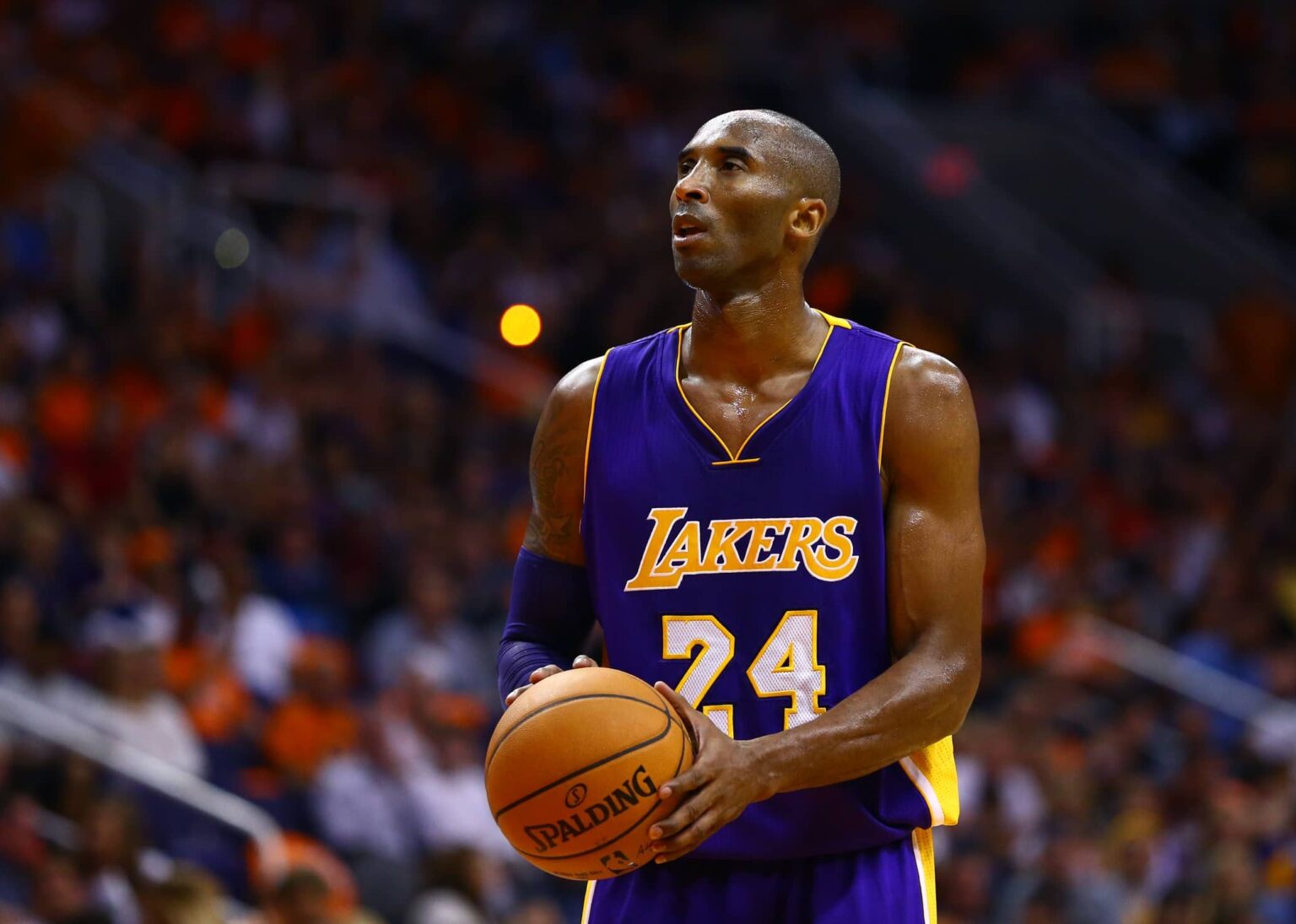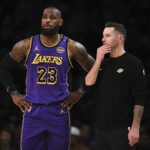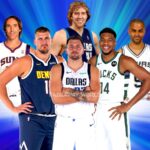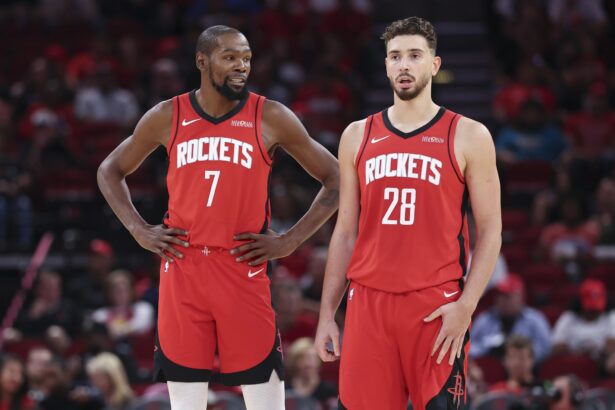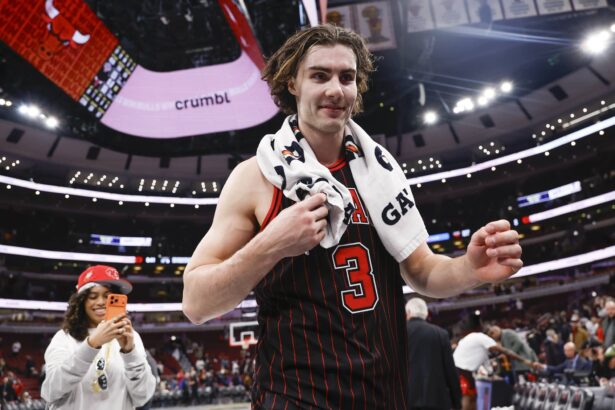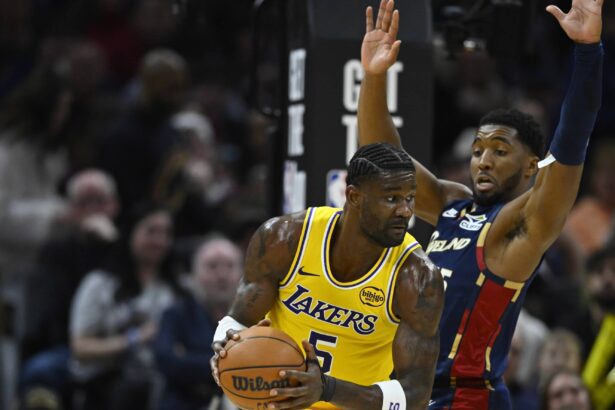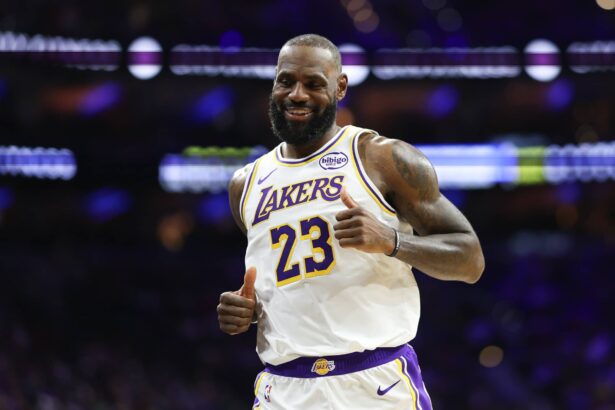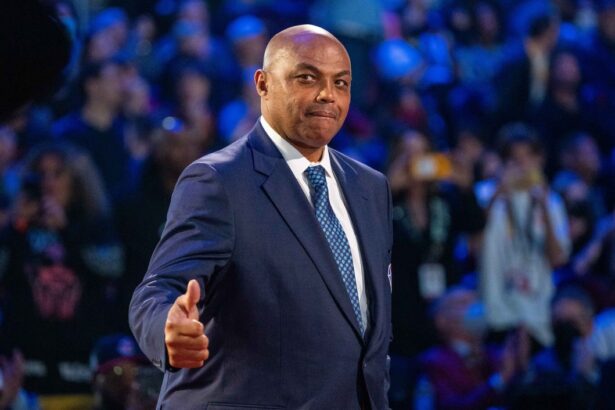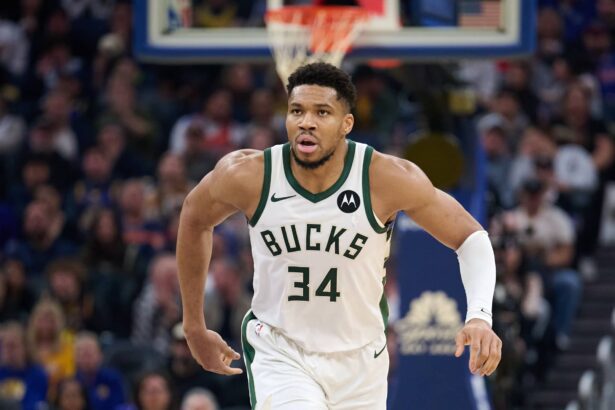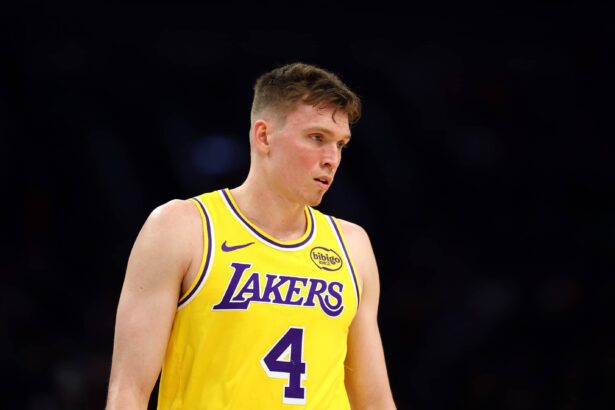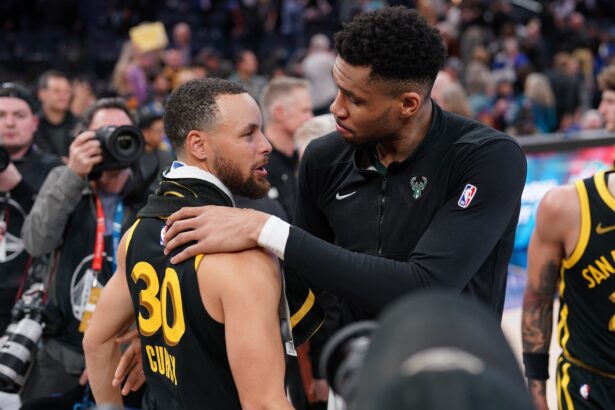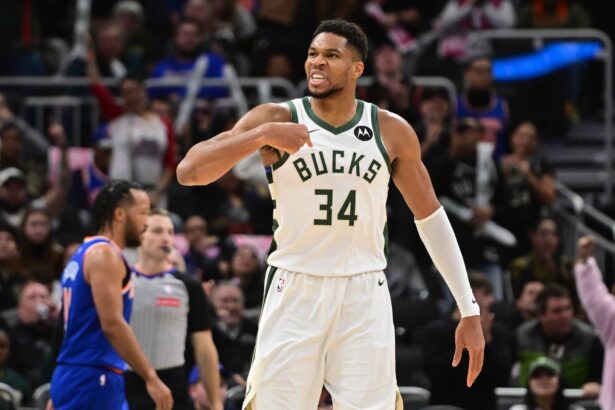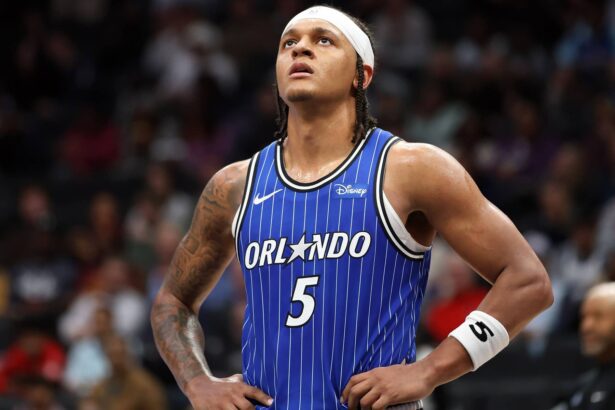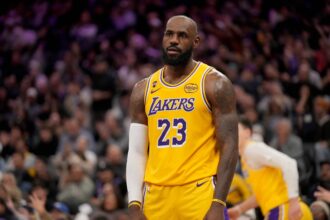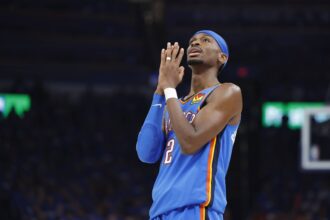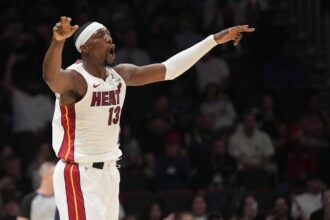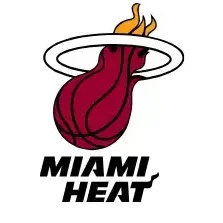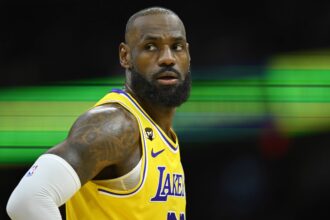In the NBA, it’s often said that no one can do it alone. But for some of the league’s greatest players, “alone” was exactly how they spent the best years of their careers.
While many stars were surrounded by All-Star teammates, others had to grind through their primes without a reliable sidekick. These are the players who, despite the odds, kept their teams afloat through sheer talent, often facing stacked superteams while lacking the support needed to go all the way. Whether due to bad trades, injuries, or just unfortunate timing, these legends will forever be remembered for carrying their franchises solo.
1. Kobe Bryant

Kobe Bryant’s prime years, particularly from 2005 to 2010, were some of the most memorable in NBA history. After Shaquille O’Neal was traded in 2004, Bryant became the undisputed leader of the Los Angeles Lakers. This period saw him put up legendary performances, but he often lacked a strong supporting cast. Despite the challenges, Kobe remained a relentless force, carrying the Lakers on his back, especially in the years before Pau Gasol arrived.
In the 2005-06 season, Kobe averaged a jaw-dropping 35.4 points, 5.3 rebounds, and 4.5 assists per game. That season, he also had his legendary 81-point game against the Toronto Raptors, the second-highest scoring performance in NBA history. Despite his brilliance, the Lakers finished with a 45-37 record and were eliminated in the first round of the playoffs by the Phoenix Suns. Kobe was selected to the All-NBA First Team and the NBA All-Defensive First Team that year, cementing his status as an elite two-way player. He also earned his eighth consecutive All-Star appearance.
The following season (2006-07), Kobe continued his scoring tear, averaging 31.6 points, 5.7 rebounds, and 5.4 assists per game. Again, the Lakers struggled to provide him with a consistent supporting cast, and they were knocked out in the first round of the playoffs by the Suns for the second year in a row. During this time, Kobe was clearly frustrated, even requesting a trade in the summer of 2007. Despite the team’s struggles, Kobe still made the All-NBA First Team, NBA All-Defensive First Team, and another All-Star appearance.
Things started to change in the 2007-08 season when the Lakers traded for Pau Gasol midway through the year. Before Gasol’s arrival, Kobe had been carrying the team, averaging 28.3 points, 6.3 rebounds, and 5.4 assists per game. That season, Kobe won his first and only NBA MVP award as he led the Lakers to a 57-25 record, the best in the Western Conference. The Lakers made it to the NBA Finals that year, but ultimately lost to the Boston Celtics. Kobe was once again named to the All-NBA First Team, the NBA All-Defensive First Team, and made his tenth All-Star appearance.
During the stretch from 2005 to 2008, Bryant was the undisputed leader of the Lakers, putting up incredible individual numbers. Across those three seasons, he averaged 31.2 points, 5.6 rebounds, and 5.3 assists per game. He won two scoring titles (2006 and 2007) and was a perennial All-Star and All-NBA First Team selection. His defense was also elite, as he made the NBA All-Defensive First Team each year. But without a reliable second star, the Lakers consistently struggled in the playoffs.
Kobe’s accolades during this time were endless. He earned five All-NBA First Team selections from 2005 to 2010, along with five NBA All-Defensive First Team nods. He led the league in scoring twice and played in the All-Star Game every single year, from his rookie season to the end of his career. His ability to take over games offensively, while also locking down opponents defensively, made him one of the most complete players in NBA history.
Despite all of his personal success, the Lakers’ inability to surround him with enough help in the mid-2000s made it difficult for Kobe to make deep playoff runs. His frustrations were understandable, considering the lack of high-quality players around him. Still, Kobe’s commitment and relentless drive never wavered, and eventually, the Lakers’ front office made moves to put him back in a position to win championships. His story during these years is one of carrying an enormous load, often without the support many other great players had, and still managing to be an all-time great performer.
Once Gasol arrived and the team reloaded, Kobe finally found the help he needed to reach the Finals three straight times (2008-2010), winning back-to-back titles in 2009 and 2010.
2. Kevin Garnett

Kevin Garnett’s prime, particularly during his time with the Minnesota Timberwolves from 1999 to 2007, is a story of individual brilliance overshadowed by a lack of team success. Known for his intense passion, elite defense, and ability to do just about everything on the floor, Garnett was one of the most versatile players in NBA history. Still, during his prime years with the Timberwolves, he struggled to find consistent support, which limited his team’s playoff success.
Garnett hit his peak in the early 2000s, and the 2003-04 season stands out as his best year. That season, KG averaged 24.2 points, 13.9 rebounds, 5.0 assists, 2.2 blocks, and 1.5 steals per game, leading the Timberwolves to a franchise-best 58-24 record. Garnett won the NBA MVP that season and earned spots on the All-NBA First Team and the NBA All-Defensive First Team. Although the incredible regular-season was a success, the Timberwolves were knocked out of the Western Conference Finals by the Los Angeles Lakers, marking the only time Garnett made it past the first round of the playoffs during his time in Minnesota.
From 1999 to 2007, Garnett averaged 21.3 points, 12.1 rebounds, 4.6 assists, 1.5 blocks, and 1.4 steals per game. He was named to the All-NBA First Team four times (2000, 2003, 2004, 2005) and made the NBA All-Defensive First Team six times during that period. His ability to dominate both ends of the floor made him one of the league’s most impactful players, but the Timberwolves’ lack of talent around him was evident.
Garnett’s frustration grew during the mid-2000s as Minnesota failed to build a competent roster around him. His supporting cast often consisted of underperforming or injured players, and the team’s front office made questionable moves, such as trading away key assets without bringing back equal value. This lack of support forced Garnett to carry an enormous load night in and night out. Even with his incredible efforts, the Timberwolves missed the playoffs in three consecutive seasons (2005-2007) before Garnett was eventually traded to the Boston Celtics in 2007.
Throughout his prime, Garnett was one of the league’s best all-around players, known for his defensive intensity, rebounding dominance, and ability to score from anywhere on the floor. He led the league in rebounds per game for four straight seasons from 2004 to 2007 and was consistently among the leaders in blocks and steals for his position. His versatility allowed him to guard multiple positions, and his high basketball IQ made him the anchor of Minnesota’s defense.
In the playoffs, Garnett’s lack of help was especially glaring. Despite his all-time great performances, the Timberwolves only advanced past the first round once during his time there, in 2004. His playoff averages during this period were 22.0 points, 13.4 rebounds, 5.2 assists, 1.8 blocks, and 1.4 steals per game, showing that his production didn’t dip when it mattered most. Yet, even his brilliance couldn’t overcome the disparity in talent between Minnesota and other Western Conference powerhouses like the Lakers and Spurs.
Garnett’s time in Minnesota ultimately ended with a trade to Boston, where he finally found the support he needed to win an NBA championship in 2008. But during his prime years with the Timberwolves, Garnett’s lack of help prevented him from achieving the kind of team success his talent deserved. His loyalty to Minnesota and his relentless drive made him a fan favorite, but the lack of competent teammates and front-office moves stunted what could have been an even more legendary career in his prime.
3. Dirk Nowitzki
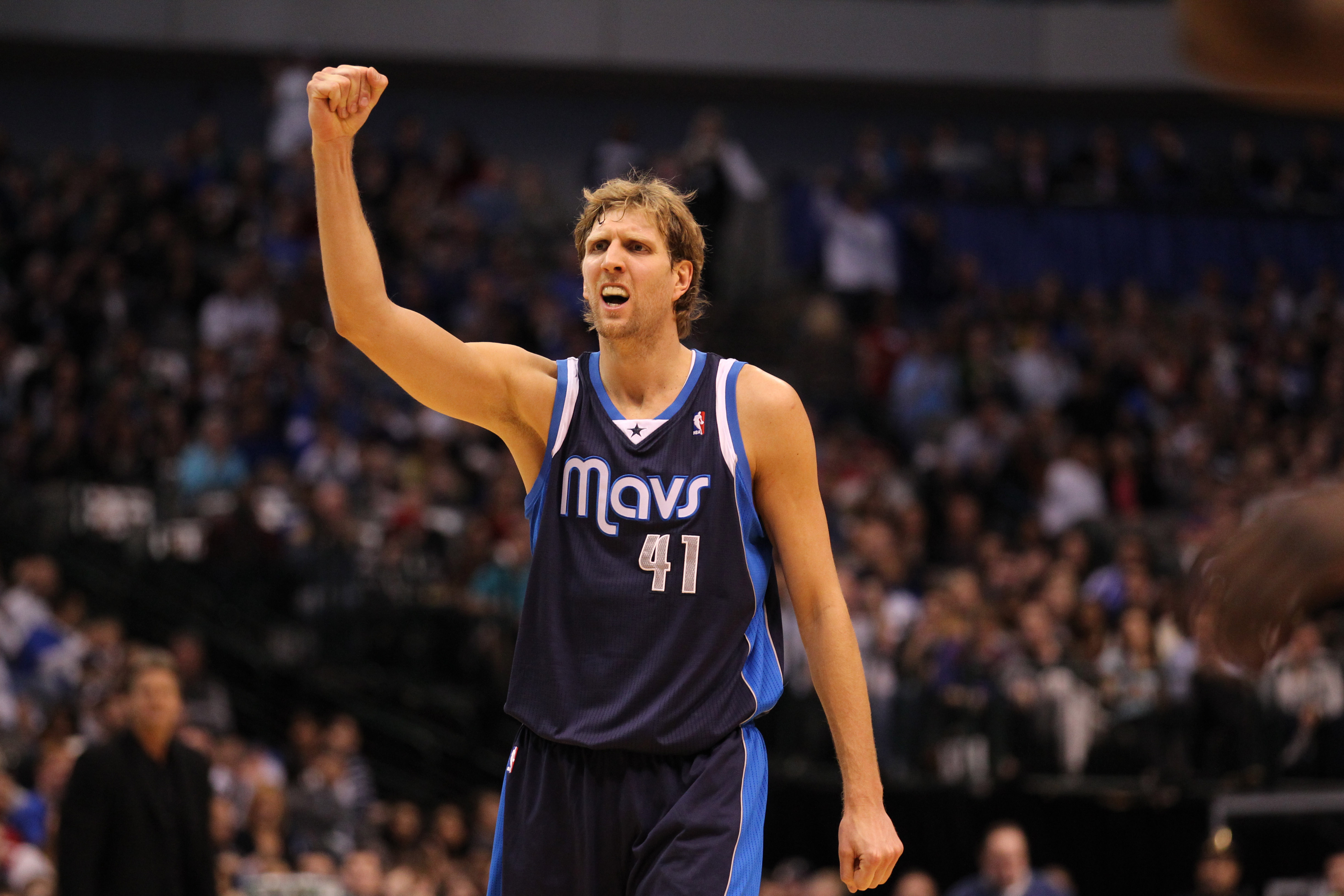
Dirk Nowitzki’s prime years, primarily from 2000 to 2011, were marked by his unique ability to dominate as a seven-footer with elite shooting skills. His game changed the way big men were viewed in the NBA, but for much of his prime, Nowitzki faced the challenge of carrying the Dallas Mavericks without another superstar by his side. His combination of scoring, rebounding, and clutch performances made him one of the best players of his generation, but team success often eluded him in those critical years.
Nowitzki’s best statistical season came in 2005-06, when he averaged 26.6 points, 9.0 rebounds, and 2.8 assists per game, leading the Mavericks to a 60-22 record and a trip to the NBA Finals. That year, Dirk’s dominance was on full display as he carried the Mavericks through the playoffs, including a memorable 50-point performance against the Phoenix Suns in the Western Conference Finals. Although the Mavericks lost to the Miami Heat in the Finals after being up 2-0, Nowitzki’s ability to score from all over the floor was undeniable.
From 2000 to 2011, Nowitzki averaged 24.5 points, 8.9 rebounds, and 2.7 assists per game. He was named to the All-NBA First Team four times during this stretch (2005, 2006, 2007, 2009) and made 10 consecutive All-Star appearances. Known for his signature one-legged fadeaway, Nowitzki was virtually unguardable, but the Mavericks struggled to find the right pieces to complement his talents, especially when it came to finding another reliable star.
The 2006-07 season was another standout year for Nowitzki. He won the NBA MVP award after leading the Mavericks to an impressive 67-15 record, the best in the league. He averaged 24.6 points, 8.9 rebounds, and 3.4 assists per game that season. Unfortunately, the team was stunned by the eighth-seeded Golden State Warriors in the first round of the playoffs, an upset that still resonates as one of the biggest playoff disappointments in NBA history. Nowitzki shouldered the blame for the loss, even though he continued to perform at an elite level throughout the season.
During the early to mid-2000s, Nowitzki often found himself carrying the Mavericks in the playoffs without a true superstar co-pilot. His supporting cast fluctuated, and while players like Jason Terry, Josh Howard, and Michael Finley were solid, they weren’t on the level of other stars around the league who were paired with multiple All-Stars. Nowitzki’s ability to consistently produce in the postseason was impressive. From 2001 to 2006, Dirk’s playoff averages were 26.4 points, 11.3 rebounds, and 2.7 assists per game, showing that his production was as reliable in the postseason as it was in the regular season.
The struggles to win a championship were a recurring theme in Nowitzki’s prime. The Mavericks were frequently seen as a regular-season powerhouse but often faltered in the playoffs. For years, the narrative around Nowitzki was that he couldn’t lead a team to a title, which only intensified after the 2006 Finals collapse and the 2007 first-round upset. Yet, through it all, Nowitzki never wavered in his commitment to Dallas and his focus on improving his game.
It wasn’t until the 2010-11 season that Nowitzki finally broke through. At age 32, Dirk led the Mavericks to a 57-25 record and one of the most impressive playoff runs in NBA history, culminating in a Finals victory over the heavily favored Miami Heat. Nowitzki averaged 27.7 points and 8.1 rebounds during that playoff run and was named Finals MVP, forever silencing his critics.
While Nowitzki eventually reached the pinnacle of NBA success, his prime years were marked by his ability to carry the Mavericks without another superstar. His loyalty, resilience, and unique skill set made him one of the greatest players of all time, even during years when team success seemed out of reach.
4. Allen Iverson

Allen Iverson’s prime, from the late 1990s to the mid-2000s, was a period where he cemented his legacy as one of the most unstoppable scorers in NBA history. Iverson’s ability to dominate games at just 6 feet tall was nothing short of extraordinary. His crossover, fearless drives to the basket, and innate ability to score made him an icon, but his lack of consistent help during his prime years often kept him from going all the way.
Iverson’s best season came in 2000-01, when he averaged 31.1 points, 4.6 assists, 3.8 rebounds, and 2.5 steals per game, leading the Philadelphia 76ers to the best record in the Eastern Conference. That year, he was named the NBA MVP and carried the 76ers to the NBA Finals almost single-handedly. Along the way, he put up iconic performances, including a 48-point explosion in Game 1 of the Finals against the heavily favored Los Angeles Lakers, famously stepping over Tyronn Lue after drilling a clutch jumper. Iverson’s efforts earned him a spot on the All-NBA First Team, and he led the league in steals as well.
From 1999 to 2006, Iverson averaged 29.7 points, 6.1 assists, 4.0 rebounds, and 2.3 steals per game. He was named to the All-NBA First Team three times (1999, 2001, 2005) and made 7 consecutive All-Star appearances during this stretch. His ability to score and defend was unmatched, but Iverson often had to shoulder the offensive burden with minimal help. The 2000-01 season was the clearest example of this, as Iverson’s supporting cast consisted of role players like Eric Snow and an aging Dikembe Mutombo. While they were a gritty defensive team, the 76ers lacked the offensive firepower to compete with the more well-rounded rosters in the league.
Iverson’s style of play was physically taxing. His relentless drives to the basket often resulted in him absorbing heavy contact, and it was common to see him bruised and battered by the end of games. Even though he played through countless injuries, Iverson rarely missed games, showcasing his toughness and resilience. The 76ers made several playoff runs during Iverson’s prime, but outside of the 2001 Finals appearance, they were frequently eliminated early due to a lack of consistent scoring options around their star.
The lack of a second star was always a point of contention for Iverson’s 76ers. While teams like the Lakers and Spurs had multiple All-Stars and Hall of Famers, Iverson was often left to fend for himself offensively. His ball-dominant style meant that the offense ran through him on nearly every possession, which made him a target for opposing defenses. Even when Iverson found success, it was often the result of his individual brilliance rather than a balanced team effort.
As Iverson’s prime years continued, he still put up incredible numbers, but team success became harder to come by. In 2005-06, Iverson averaged 33.0 points and 7.4 assists per game, but the 76ers missed the playoffs. By 2006, Iverson’s time in Philadelphia was coming to an end, as the front office began to explore trade options. He was eventually dealt to the Denver Nuggets, marking the end of his legendary run with the 76ers.
Allen Iverson’s prime years are remembered for his unmatched scoring ability, relentless drive, and iconic moments, but also for the fact that he never had the necessary help to consistently compete for championships. His legacy is one of heart, determination, and incredible individual performances, but those prime years in Philadelphia left fans wondering what could have been if he had the right teammates around him.
5. Carmelo Anthony
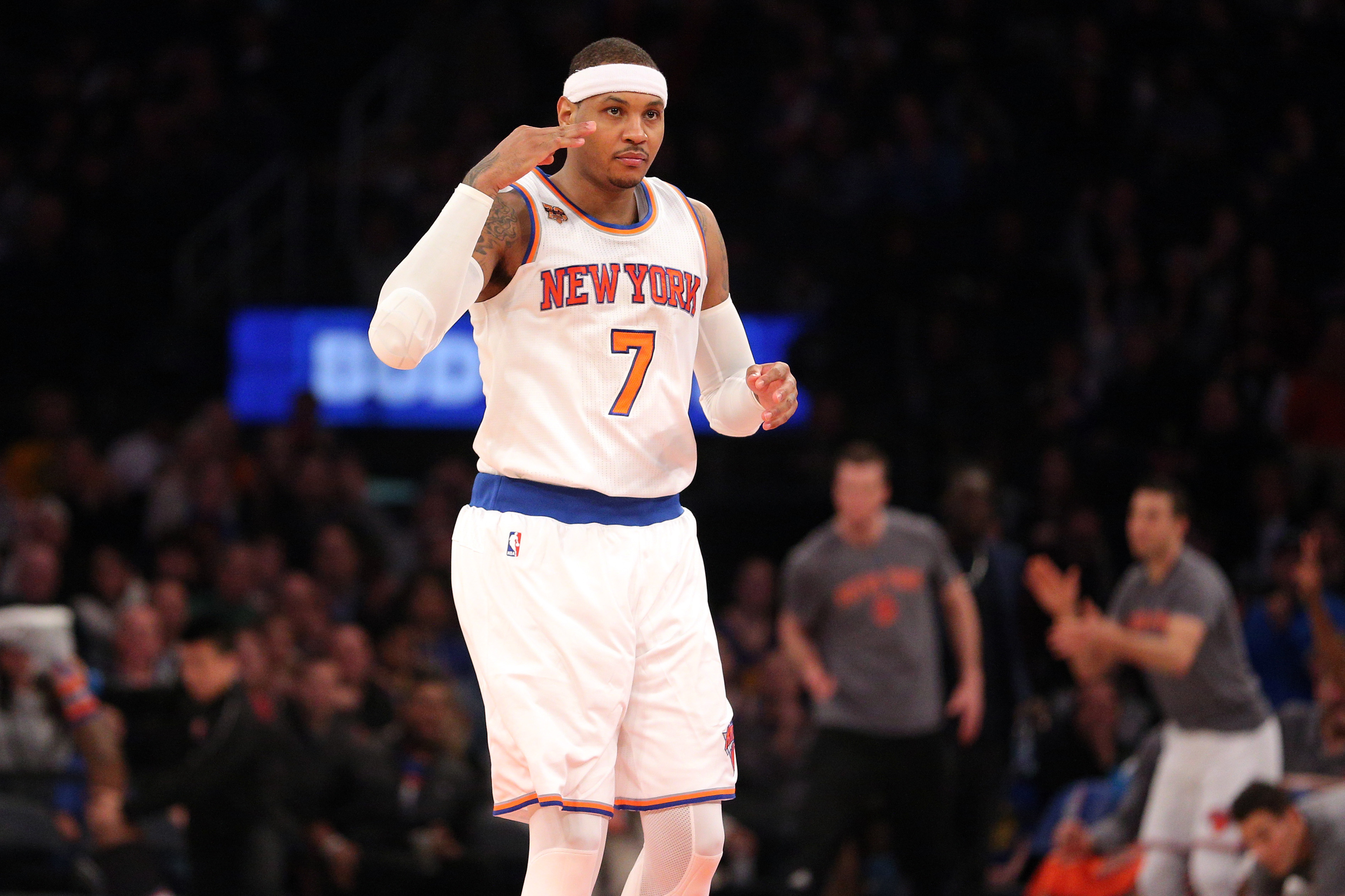
Few players in NBA history have had a scoring touch as natural as Carmelo Anthony’s. His ability to create his own shot, combined with his strength and footwork, made him one of the most dangerous offensive weapons in the league. During his prime years with the Denver Nuggets and New York Knicks, Anthony often found himself carrying the burden of scoring without much help, facing teams with deeper, more balanced rosters.
By 2006-07, Anthony was at the peak of his scoring powers, averaging a career-high 28.9 points, along with 6.0 rebounds and 3.8 assists per game. While the Nuggets had a solid supporting cast, they lacked another consistent All-Star to complement Anthony’s offensive brilliance. Players like Allen Iverson and Chauncey Billups joined the team in later years, but during much of Anthony’s prime, Denver’s supporting pieces weren’t strong enough to compete with powerhouse teams in the Western Conference. The Nuggets were eliminated in the first round of the playoffs multiple times, often up against teams with multiple All-Stars, such as the San Antonio Spurs or Los Angeles Lakers.
Anthony’s best chance at a title with Denver came in 2008-09, when the Nuggets made it to the Western Conference Finals. He averaged 27.2 points in the playoffs and battled Kobe Bryant’s Lakers in a tough six-game series. While Billups’ arrival helped stabilize the team, Anthony still didn’t have the consistent elite support many of his rivals enjoyed. The Lakers, with Bryant and Pau Gasol, ultimately had the depth and star power that Denver lacked, and the Nuggets couldn’t get over the hump.
In 2011, Anthony was traded to the New York Knicks, hoping a change of scenery would bring the help he needed. His first full season with the Knicks, 2012-13, was arguably his best. He led the league in scoring with 28.7 points, while adding 6.9 rebounds and 2.6 assists per game. The Knicks won 54 games, their best record in over a decade, but the roster around Melo was still flawed. The team had solid players like Tyson Chandler and Amar’e Stoudemire, but injuries and inconsistent play prevented them from forming a true contender. The Knicks fell in the second round of the playoffs to a deeper Indiana Pacers team.
Throughout his prime, Anthony was consistently recognized as one of the best scorers in the league, earning 10 All-Star appearances and making the All-NBA Team six times, including All-NBA Second Team nods in 2010, 2013, and 2014. While his scoring numbers were elite, his teams frequently lacked depth, defensive consistency, and a second star to share the load. This often left Anthony carrying a heavier burden than his contemporaries like LeBron James or Kevin Durant, who had strong co-stars throughout their careers.
In addition to his NBA career, Anthony’s legacy includes his dominance on the international stage. He became the all-time leading scorer for Team USA, winning three Olympic gold medals in 2008, 2012, and 2016, solidifying his place as one of the most decorated players in basketball history. His individual brilliance remains unquestioned, but the lack of a true star alongside him throughout much of his prime kept him from reaching the NBA’s highest heights.
6. Dwyane Wade
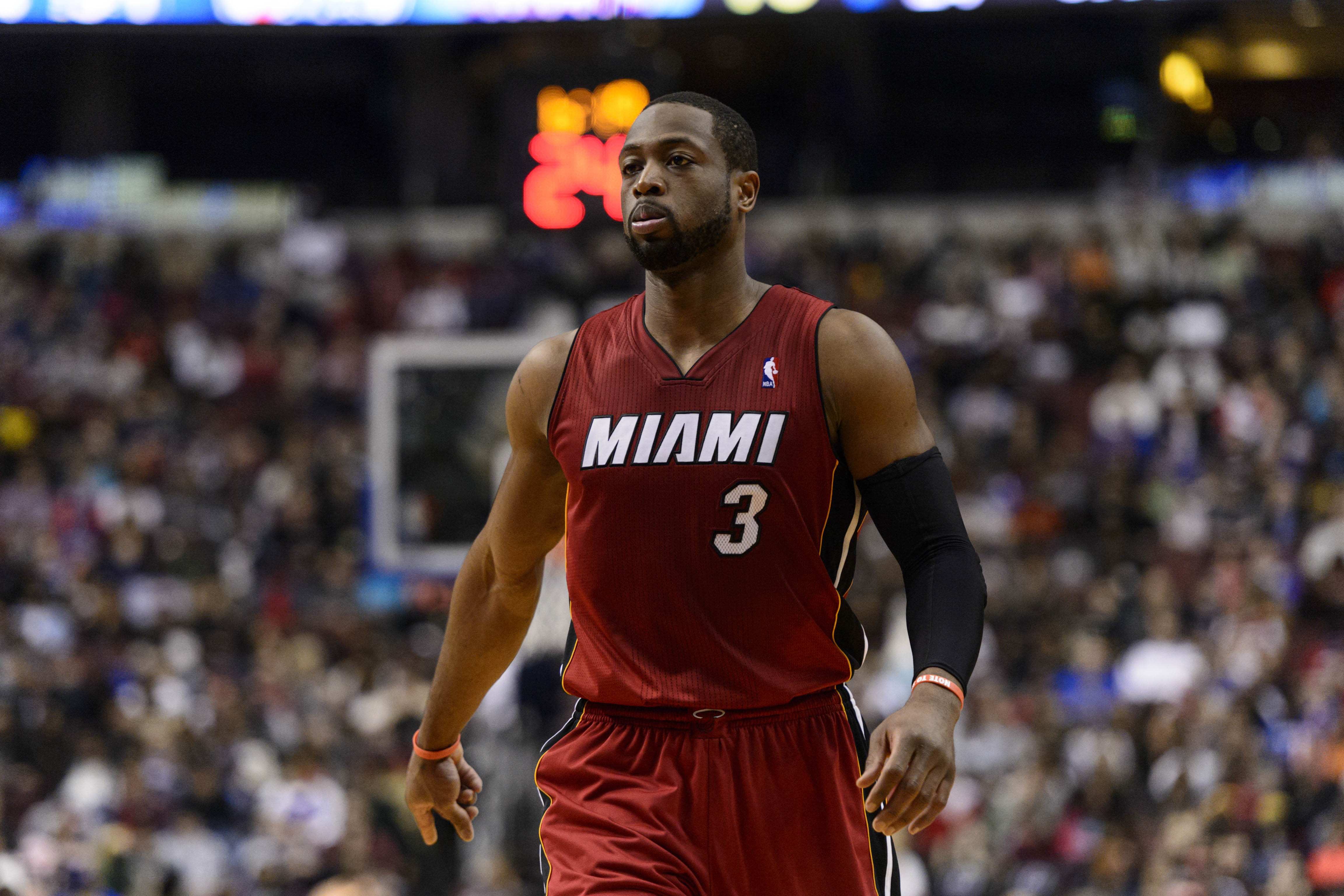
Dwyane Wade’s prime is often remembered for his incredible ability to take over games on both ends of the floor, especially as a slashing guard with unmatched athleticism and defensive prowess. While Wade eventually teamed up with LeBron James and Chris Bosh to win two more championships in Miami, his prime before that—particularly from 2005 to 2010—was defined by his brilliance in carrying the Miami Heat with little consistent help around him.
Wade’s defining moment came in 2006, when he led the Heat to their first NBA Championship, averaging 34.7 points, 7.8 rebounds, and 3.8 assists per game in the Finals against the Dallas Mavericks. While he had Shaquille O’Neal on the roster, O’Neal was past his prime, and it was Wade who took over, earning Finals MVP. Over the next several years, Wade continued to put up elite numbers but struggled with an inconsistent supporting cast, injuries to key teammates, and front-office decisions that left Miami without enough firepower.
From 2007 to 2010, Wade averaged 27.8 points, 6.5 assists, 5.0 rebounds, and 1.9 steals per game. During this time, he won the scoring title in 2008-09 by putting up 30.2 points per game, but Miami couldn’t get out of the first round of the playoffs in 2009 or 2010, even with Wade’s all-world performances. The Heat were stuck in a rebuilding phase after Shaq’s departure, and Wade was left to carry much of the burden alone, especially as the team cycled through role players and short-term additions that never quite meshed.
Wade earned several individual accolades during his prime, including 6 All-Star appearances from 2005 to 2010 and 5 All-NBA Team selections, with First Team nods in 2009 and 2010. His ability to dominate both offensively and defensively made him one of the most complete guards in the game, but without a consistent second star by his side, the Heat were never able to seriously challenge for a title post-2006.
In 2010, Wade finally got the help he needed when LeBron James and Chris Bosh joined Miami, leading to two more championships in 2012 and 2013. But the years before that partnership showed just how much Wade could do with so little, dragging Miami to the playoffs and putting up MVP-caliber seasons in a less-than-ideal situation. His ability to lead, score, and lock down opponents, often while dealing with subpar rosters, solidified his place as one of the best players of his generation.
7. Damian Lillard
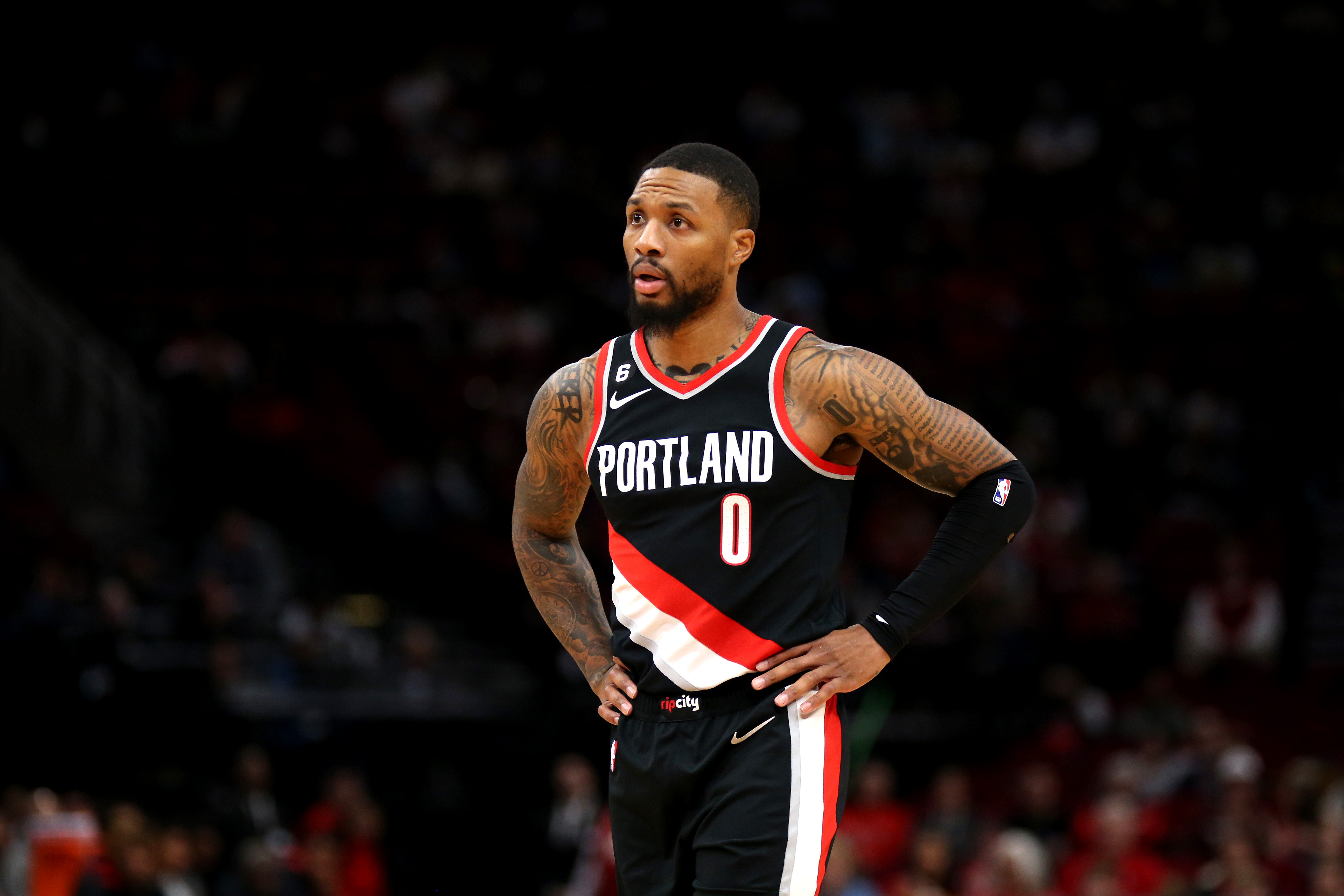
Damian Lillard became the heart and soul of the Trail Blazers for over a decade, establishing himself as one of the most clutch and prolific scorers in NBA history. Known for his deep range, ability to take over games, and fearless play, Lillard’s prime has been marked by his loyalty to the Trail Blazers until last season, even as the team failed to consistently provide him with another superstar-level talent to compete with the league’s top teams.
Lillard’s most critical season came in 2019-20, when he averaged 30.0 points, 8.0 assists, and 4.3 rebounds per game, putting him in the conversation as one of the league’s top guards. He had multiple seasons averaging over 25 points and 6 assists (32.2 PPG in 2022-23, before his trade to the Bucks), with his ability to pull up from nearly half-court becoming a signature weapon. Lillard regularly led the Trail Blazers to the playoffs, but the lack of a true co-star often left Portland outmatched by deeper Western Conference teams like the Warriors, Lakers, and Rockets.
In 2018-19, Lillard led the Blazers to the Western Conference Finals, his deepest playoff run. Amid his efforts, including a 50-point game and a series-winning buzzer-beater against the Oklahoma City Thunder in the first round, the Blazers were swept by the Golden State Warriors. Throughout his prime, Lillard has had to make do with solid but inconsistent players like CJ McCollum, Jusuf Nurkic, and role players who didn’t measure up to the top-tier talent found on other contending teams.
Lillard’s prime has been filled with incredible individual accolades. He has been named to the All-NBA Team seven times, including First Team in 2018, and has been selected to eight All-Star Games. His clutch performances, including his signature “Dame Time” game-winners, have earned him the reputation of being one of the most feared players in crunch time.
While his loyalty to Portland was commendable, it came with the challenge of facing loaded teams without enough help. The Blazers were regular playoff participants, but Lillard often had to carry the offensive load by himself, especially in tough playoff series. His ability to score from anywhere on the floor and take over games in the biggest moments made him an icon in Portland, but his chances at a championship were limited by the team’s inability to surround him with the kind of talent needed to make a true title run.
Damian Lillard’s legacy is cemented as one of the best guards of his era, but the lack of another All-Star caliber teammate throughout most of his prime prevented him from reaching the Finals. Now, as a member of the Bucks and with Giannis Antetokounmpo alongside him, this season could be the one that sees him rise to the top.
8. Pete Maravich
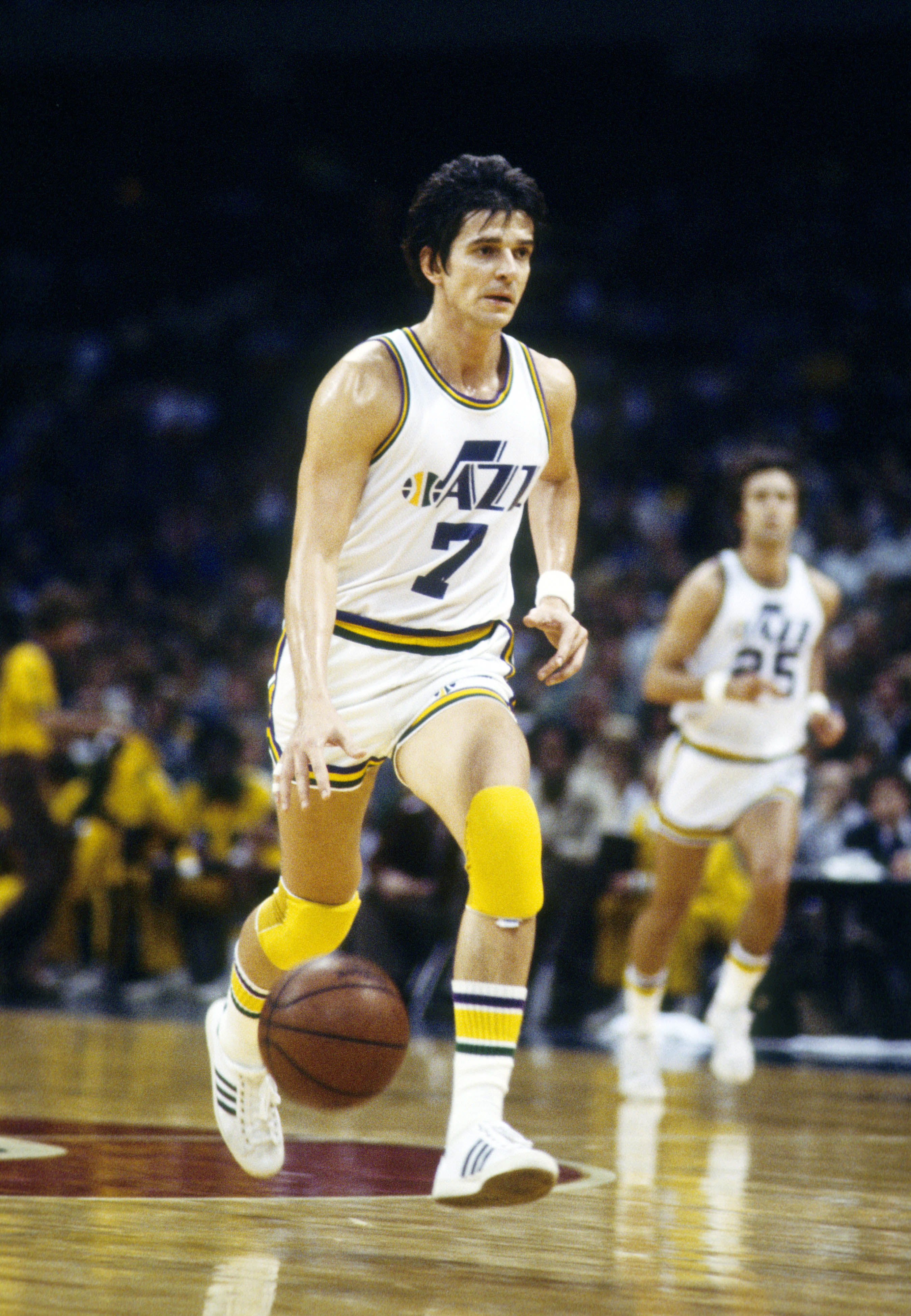
Pete Maravich, known as “Pistol Pete,” was one of the most creative and skilled players to ever step onto a basketball court. During his prime years in the 1970s, Maravich dazzled fans with his flashy ball-handling, deep shooting range, and incredible scoring ability. His unique style of play was ahead of its time, but he spent much of his career with teams that couldn’t provide him with the necessary support to seriously contend for championships.
Maravich’s best years came with the New Orleans Jazz, where he was the clear leader of a young and struggling franchise. In the 1976-77 season, he averaged a career-high 31.1 points, 5.4 assists, and 5.1 rebounds per game, winning the NBA scoring title. His ability to create his own shot from anywhere on the floor and to distribute the ball made him one of the most versatile guards in the league. Yet, the Jazz were a below-average team during his prime, and Maravich’s individual brilliance was often overshadowed by the team’s poor performance.
The lack of talent around Maravich was evident in the Jazz’s record. During his time in New Orleans, the team never made the playoffs, and they frequently finished near the bottom of the standings. Maravich was often forced to do everything on the offensive end, as the roster around him lacked the necessary depth or consistency to compete in the highly competitive Western Conference. The Jazz management struggled to build a competent team, and injuries further hampered their chances.
From 1974 to 1979, Maravich averaged 26.1 points, 5.3 assists, and 4.4 rebounds per game. He was named to the All-NBA First Team twice (1976, 1977) and made 5 All-Star appearances during his career. His combination of scoring and playmaking ability was unmatched at the time, but the Jazz’s struggles made it difficult for Maravich to showcase his full potential in meaningful playoff games. His prime was defined by his own excellence in the face of team mediocrity.
Maravich’s playing style was ahead of its time, often compared to the modern-day game with his deep shooting and flashy passes. He played in an era where the three-point line didn’t exist for much of his career, yet his range and shot-making ability were evident. His showmanship drew fans, but it couldn’t elevate the talent-starved Jazz into a playoff team.
Injuries began to slow Maravich down in the late 1970s, cutting his prime years shorter than they should have been. His knee issues became a constant struggle, and by the time the three-point line was introduced in the NBA, Maravich’s best years were behind him. While he was still effective in the latter part of his career, the lack of help and support during his prime limited his ability to compete at the highest level.
Pete Maravich remains one of the greatest players never to win a title, and his prime is remembered for his remarkable individual talent rather than team success. His influence on the game and his ability to captivate audiences with his creativity left a lasting legacy, but he was never given the supporting cast needed to truly challenge for an NBA championship.
9. Alex English
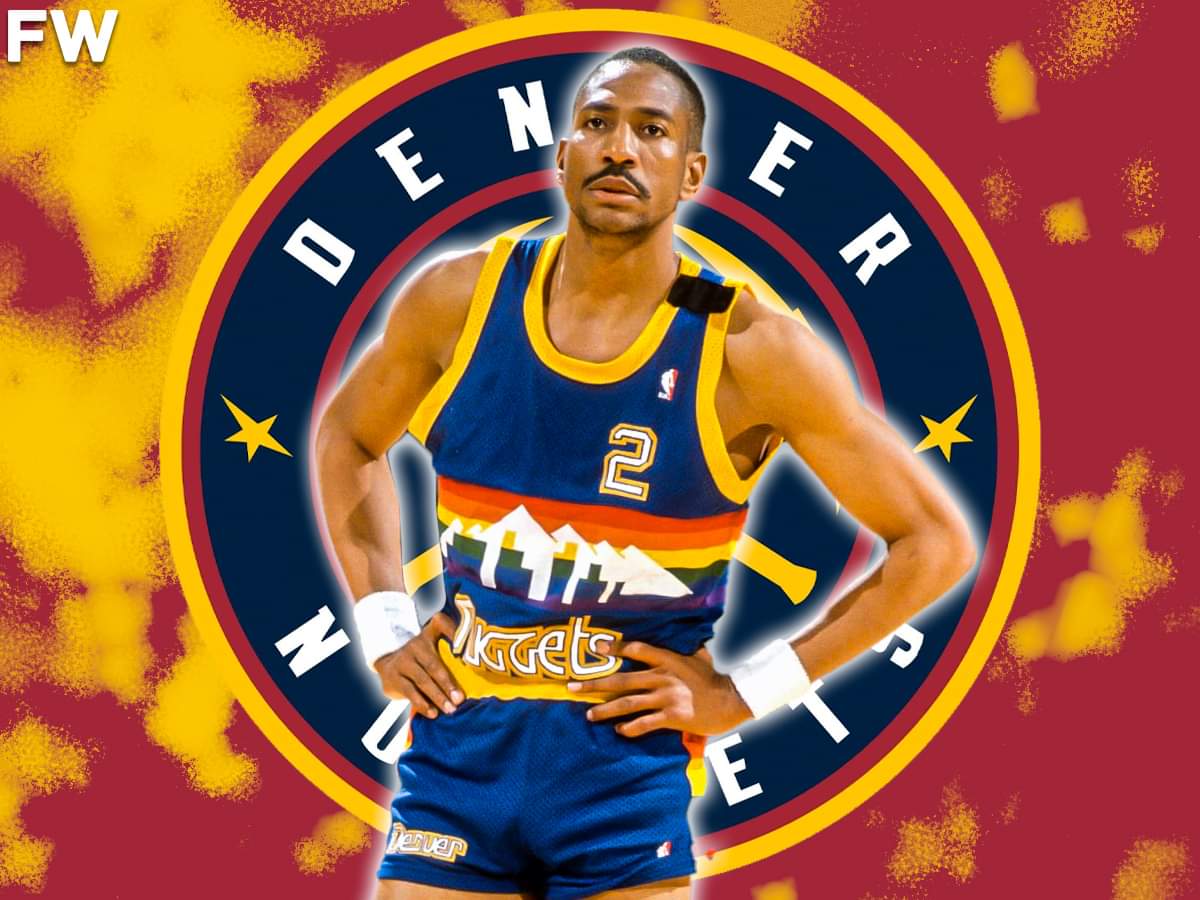
Alex English was one of the smoothest scorers of the 80s, a guy who made dropping 25 to 30 points a night look easy. He spent most of his prime with the Denver Nuggets, consistently putting up big numbers, but the team just couldn’t get over the hump. English had all the talent in the world, but the Nuggets didn’t have the kind of roster depth or defensive intensity to compete with the top teams in the league.
In 1982-83, English really hit his stride, averaging 28.4 points, 7.3 rebounds, and 5.0 assists per game. He even led the league in scoring that year, showing off that deadly mid-range game and a smooth touch around the basket. The Nuggets played a fast-paced style under coach Doug Moe, and English thrived in it. The problem? The team wasn’t exactly known for its defense, and while they could put up points, they couldn’t stop anyone.
Denver had a few good players like Fat Lever and Dan Issel, but they weren’t enough to help English take the Nuggets deep into the playoffs. One of their best runs came in 1985, when they made it to the Western Conference Finals. English averaged 30.2 points in the playoffs, but the team ran into the Showtime Lakers, who had Magic Johnson and Kareem Abdul-Jabbar. That was a tough hill to climb, and the Nuggets ended up losing the series in five games.
For most of the 80s, English was one of the best scorers in the league. He had eight straight seasons where he averaged over 25 points per game, which says a lot about how reliable he was night in and night out. But as good as he was, he didn’t have another star alongside him to really make a title push. The Nuggets had plenty of offense, but their defense and depth weren’t on par with the heavyweights out West.
Even though English never got a ring, his consistency and ability to fill it up made him one of the most underrated players of his era. He retired as the Nuggets’ all-time leading scorer, but without that deep playoff run or a Finals appearance, his incredible offensive talent didn’t get the spotlight it deserved.
10. Kevin Love
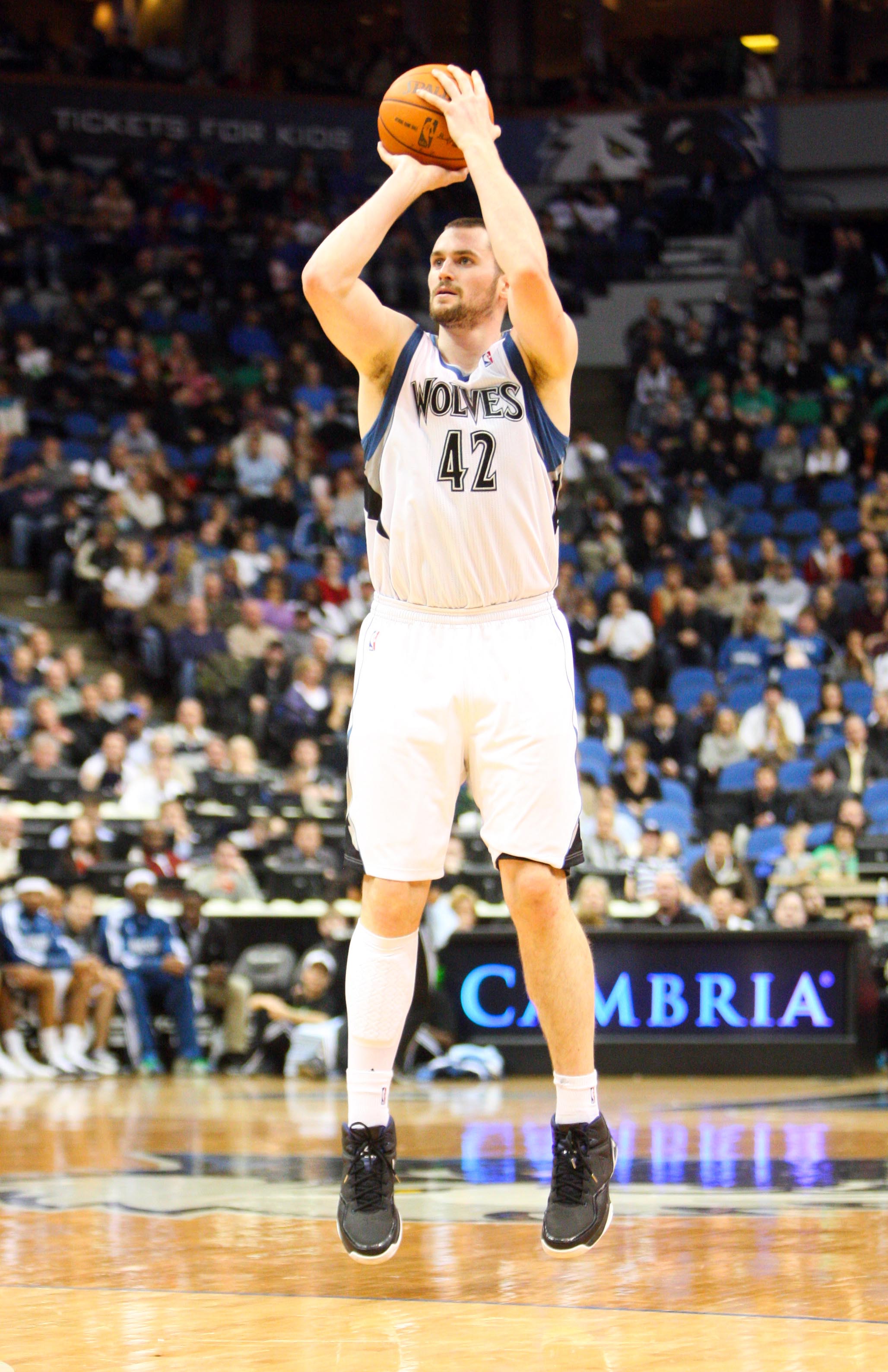
Kevin Love was a double-double machine during his prime with the Timberwolves, putting up ridiculous stats on a nightly basis. He was the kind of player who could dominate the glass and stretch the floor with his shooting, but his time in Minnesota was marked by the lack of a solid supporting cast. Love did everything he could, but the Wolves just couldn’t put together a team around him that could make any real noise in the Western Conference.
From 2010 to 2014, Love was putting up monster numbers, averaging 26.1 points, 12.5 rebounds, and even dishing out 4.4 assists in his best season (2013-14). His ability to score both inside and out, along with his elite rebounding, made him one of the best power forwards in the game. The guy could drop 30 points and grab 20 rebounds like it was nothing. But Minnesota’s front office struggled to build a competent team around him, and they never made the playoffs during Love’s prime years there.
One of Love’s most notable seasons was 2011-12, when he averaged 26.0 points and led the league in rebounding with 13.3 boards a game. That year, he put up a 51-point performance against the Oklahoma City Thunder, showing just how dangerous he could be when he got going. But even with those insane numbers, the Timberwolves weren’t competitive in the brutal Western Conference, where teams like the Spurs, Thunder, and Lakers dominated the playoff picture.
The Timberwolves’ struggles weren’t just about Love needing help. The team cycled through multiple coaches and rosters that didn’t click. Love had some decent players around him at times, like Ricky Rubio, but no one was on the level to really push the team forward. The Wolves consistently finished near the bottom of the standings, and Love’s efforts went largely unnoticed outside of his stat lines.
During his time with Minnesota, Love earned three All-Star appearances (2011, 2012, 2014) and made the All-NBA Second Team in 2012. He also won the Most Improved Player award in 2011, a testament to how quickly he developed into one of the league’s elite big men. But while the accolades piled up for Love, the wins did not. Frustration grew, and by 2014, it was clear that Love’s time in Minnesota was coming to an end.
Love eventually joined LeBron James and Kyrie Irving in Cleveland, where he finally got the help he needed to win a championship in 2016. But during his prime in Minnesota, it was a different story. His time with the Wolves is remembered for big numbers and big performances, but without a proper supporting cast, his prime years never saw the playoff success that his talent deserved.
11. DeMarcus Cousins
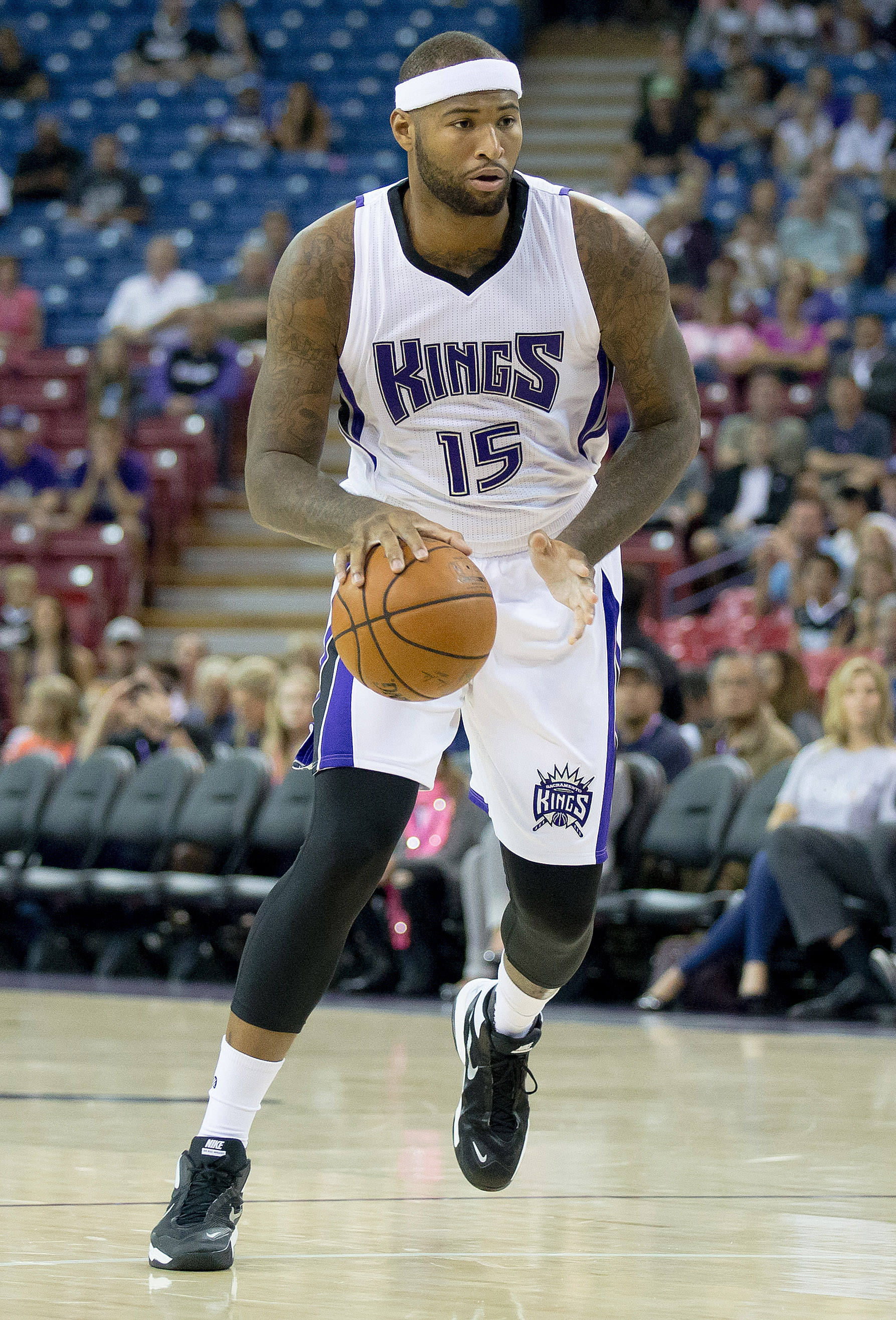
DeMarcus “Boogie” Cousins was one of the most dominant and versatile big men of his era, especially during his prime with the Sacramento Kings. Cousins was a nightmare matchup for defenders, with the ability to bully opponents in the post, shoot from outside, and even handle the ball like a guard. But for all his talent, Cousins spent most of his prime carrying a Kings team that was consistently at the bottom of the standings, never able to provide him the support he needed to make a real playoff push.
From 2013 to 2017, Cousins put up some ridiculous numbers, averaging 26.9 points, 11.5 rebounds, and even 4.6 assistsat his peak in the 2016-17 season. His ability to score from all three levels made him nearly unguardable, and on any given night, he could put up 30 points and 15 boards. But Sacramento’s constant turnover in coaching, front-office dysfunction, and poor roster construction meant that Boogie was often a one-man show.
The Kings struggled year after year, never finishing above .500 during Cousins’ time with the team. Sacramento cycled through coaches—six in seven years—and management decisions often left the roster lacking in talent. While Cousins played alongside solid players like Rudy Gay, they never had another All-Star caliber talent to help lift the team into playoff contention. The Kings failed to make the postseason in any of Cousins’ prime years, leaving his elite performances wasted on a team going nowhere.
Cousins’ frustration with the team’s lack of progress was clear. He had a fiery personality, and clashes with coaches and the front office were common. But even as the losses piled up, Cousins never stopped producing. His three All-Star appearances (2015, 2016, 2017) and two All-NBA Second Team selections (2015, 2016) reflected just how good he was individually, even if the Kings couldn’t put together a winning squad around him.
One of Boogie’s most memorable games came in 2016, when he dropped 56 points against the Charlotte Hornets. It was the highest-scoring game by a Kings player in the Sacramento era and a reminder of just how unstoppable Cousins could be. But nights like that didn’t change the fact that the team around him wasn’t built to compete in the brutal Western Conference, where contenders like the Warriors and Spurs dominated.
In 2017, Cousins was traded to the New Orleans Pelicans, ending his time in Sacramento. His years with the Kings will always be remembered for what could have been—an All-Star big man putting up Hall of Fame numbers without a team capable of helping him reach the playoffs, let alone contend for a title. Injuries would later derail his career, but during his prime, Cousins was one of the best players in the league, even if the Kings couldn’t make the most of it.

